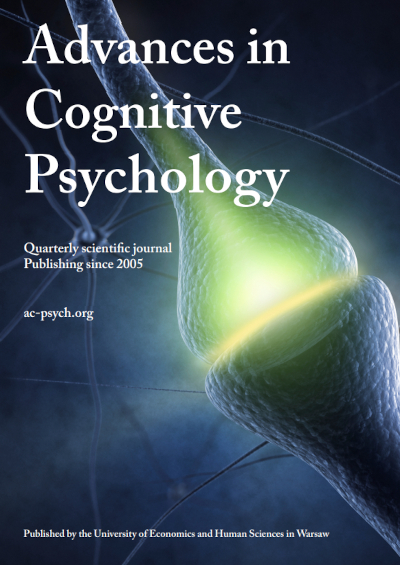Archive of all online content
-
Volume 22 Issue 1
pp. 1-41
()
-
Volume 21 Issue 4
pp. 309-500
(16 November 2025) -
Volume 21 Issue 3
pp. 212-308
(2 September 2025) -
Volume 21 Issue 2
pp. 120-211
(25 May 2025) -
Volume 21 Issue 1
pp. 1-93
(11 March 2025)
-
Volume 20 Issue 4
pp. 237-388
(20 November 2024) -
Volume 20 Issue 3
pp. 158-236
(19 August 2024) -
Volume 20 Issue 2
pp. 80-157
(24 June 2024) -
Volume 20 Issue 1
pp. 1-79
(1 March 2024)
-
Volume 19 Issue 4
pp. 1-105
(27 December 2023) -
Volume 19 Issue 3
pp. 211-333
(25 July 2023) -
Volume 19 Issue 2
pp. 111-200
(30 June 2023) -
Volume 19 Issue 1
pp. 1-110
(31 March 2023)
-
Volume 18 Issue 4
pp. 243-303
(31 December 2022) -
Volume 18 Issue 3
pp. 165-202
(30 September 2022) -
Volume 18 Issue 2
pp. 85-164
(30 June 2022) -
Volume 18 Issue 1
pp. 1-84
(31 March 2022)
-
Volume 17 Issue 4
pp. 250-291
(31 December 2021) -
Volume 17 Issue 3
pp. 193-249
(30 September 2021) -
Volume 17 Issue 2
pp. 99-192
(30 June 2021) -
Volume 17 Issue 1
pp. 1-98
(31 March 2021)
-
Volume 16 Issue 4
pp. 291-369
(31 December 2020) -
Volume 16 Issue 3
pp. 176-290
(30 September 2020) -
Volume 16 Issue 2
pp. 85-175
(30 June 2020) -
Volume 16 Issue 1
pp. 1-84
(31 March 2020)
-
Volume 15 Issue 4
pp. 236-317
(31 December 2019) -
Volume 15 Issue 3
pp. 169-235
(30 September 2019) -
Volume 15 Issue 2
pp. 75-168
(30 June 2019) -
Volume 15 Issue 1
pp. 1-74
(31 March 2019)
-
Volume 14 Issue 4
pp. 150-208
(31 December 2018) -
Volume 14 Issue 3
pp. 62-150
(30 September 2018) -
Volume 14 Issue 2
pp. 38-61
(30 June 2018) -
Volume 14 Issue 1
pp. 1-37
(31 March 2018)
-
Volume 13 Issue 4
pp. 267-322
(31 December 2017) -
Volume 13 Issue 3
pp. 190-266
(30 September 2017) -
Volume 13 Issue 2
pp. 121-189
(30 June 2017) -
Volume 13 Issue 1
pp. 1-120
(31 March 2017)
-
Volume 12 Issue 4 (special issue)
pp. 150-235
(31 December 2016) -
Volume 12 Issue 3
pp. 130-149
(30 September 2016) -
Volume 12 Issue 2
pp. 67-129
(30 June 2016) -
Volume 12 Issue 1
pp. 1-66
(31 March 2016)
-
Volume 11 Issue 4
pp. 118-135
(31 December 2015) -
Volume 11 Issue 3
pp. 64-117
(30 September 2015) -
Volume 11 Issue 2
pp. 31-63
(30 June 2015) -
Volume 11 Issue 1
pp. 1-30
(31 March 2015)
-
Volume 10 Issue 4
pp. 119-155
(31 December 2014) -
Volume 10 Issue 3
pp. 81-118
(30 September 2014) -
Volume 10 Issue 2
pp. 32-80
(30 June 2014) -
Volume 10 Issue 1
pp. 1-31
(27 February 2014)
-
Volume 9 Issue 4
pp. 156-223
(31 December 2013) -
Volume 9 Issue 3
pp. 112-155
(24 October 2013) -
Volume 9 Issue 2
pp. 53-111
(30 June 2013) -
Volume 9 Issue 1
pp. 1-52
(31 March 2013)
-
Volume 8 Issue 4
pp. 267-295
(31 December 2012) -
Volume 8 Issue 3
pp. 210-266
(27 September 2012) -
Volume 8 Issue 2
pp. 70-209
(28 June 2012) -
Volume 8 Issue 1
pp. 1-69
(29 March 2012)
-
Volume 7 Issue 2
pp. 55-156
(31 December 2011) -
Volume 7 Issue 1
pp. 1-54
(31 March 2011)
-
Volume 6 Issue 6
pp. 1-141
(31 December 2010)
-
Volume 5 Issue 5
pp. 1-134
(31 December 2009)
-
Volume 4 Issue 1
pp. 1-14
(31 March 2008)
-
Volume 3 Issue 4
pp. 419-465
(31 December 2007) -
Volume 3 Issue 3
pp. 363-417
(30 September 2007) -
Volume 3 Issue 1
pp. 1-361
(31 March 2007)
-
Volume 2 Issue 4
pp. 239-276
(31 December 2006) -
Volume 2 Issue 2
pp. 99-237
(30 June 2006) -
Volume 2 Issue 1
pp. 1-97
(31 March 2006)
-
Volume 1 Issue 1
pp. 1-16
()
Volume 10 Issue 3 (2014)
Trait anxiety reduces affective fading for both positive and negative autobiographical memories
W. Richard Walker, Cecile N. Yancu, John J. Skowronski

W. Richard Walker, Department of Psychological Sciences, Winston-Salem State University, Winston-Salem, NC 27110, USA.
E-mail: walkerr@wssu.edu
The affect associated with negative events fades faster than the affect associated with positive events (the Fading Affect Bias; the FAB). The research that we report examined the relation between trait anxiety and the FAB. Study 1 assessed anxiety using the Depression, Anxiety, and Stress Scale; Studies 2 and 3 used the Beck Anxiety Inventory. Studies 1 and 2 used retrospective procedures to probe positive event memories and negative event memories while Study 3 used a diary procedure. The results of all 3 studies showed that increased anxiety was associated with both a lowered FAB and lower overall affect fading for both positive events and negative events. These results suggest that for people free of trait anxiety, the FAB reflects the operation of a healthy coping mechanism in autobiographical memory that is disrupted by trait anxiety.
Keywords: trait anxiety, fading affect bias, emotion, autobiographical memoryThe effect of spatial organization of targets and distractors on the capacity to selectively memorize objects in visual short-term memory
Aymen Ben Abbes, Emmanuelle Gavault, Thierry Ripoll

Thierry Ripoll, Laboratoire de Psychologie Cognitive, Université d'Aix-Marseille, 3 place Victor Hugo 13331, Cedex 1,
France.
E-mail: Thierry.Ripoll@univ-amu.fr
We conducted a series of experiments to explore how the spatial configuration of objects influences the selection and the processing of these objects in a visual short-term memory task. We designed a new experiment in which participants had to memorize 4 targets presented among 4 distractors. Targets were cued during the presentation of distractor objects. Their locations varied according to 4 spatial configurations. From the first to the last configuration, the distance between targets’ locations was progressively increased. The results revealed a high capacity to select and memorize targets embedded among distractors even when targets were extremely distant from each other. This capacity is discussed in relation to the unitary conception of attention, models of split attention, and the competitive interaction model. Finally, we propose that the spatial dispersion of objects has different effects on attentional allocation and processing stages. Thus, when targets are extremely distant from each other, attentional allocation becomes more difficult while processing becomes easier. This finding implicates that these 2 aspects of attention need to be more clearly distinguished in future research.
Keywords: visual short-term memory, selective attention, spatial organization, cueingDiscrimination in measures of knowledge monitoring accuracy
Christopher A. Was

Christopher A. Was, Educational Psychology, 405 White Hall, Kent State University, Kent, OH 44240, USA.
E-mail: cwas@kent.edu
Knowledge monitoring predicts academic outcomes in many contexts. However, measures of knowledge monitoring accuracy are often incomplete. In the current study, a measure of students’ ability to discriminate known from unknown information as a component of knowledge monitoring was considered. Undergraduate students’ knowledge monitoring accuracy was assessed and used to predict final exam scores in a specific course. It was found that gamma, a measure commonly used as the measure of knowledge monitoring accuracy, accounted for a small, but significant amount of variance in academic performance whereas the discrimination and bias indexes combined to account for a greater amount of variance in academic performance.
Keywords: knowledge monitoring, metacognition, measures of knowledge monitoringMood Induction in Children: Effect of the Affective Valence of a Text on Phonological Working Memory
Michaël Fartoukh, Lucile Chanquoy, Annie Piolat

Michael Fartoukh, UMR CNRS 7320, Bases, Corpus, Langage, Université Nice Sophia Antipolis, Maison des Sciences de l'Homme et de la Société-Sud Est, 24, Avenue des Diables Bleus, 06357 Nice Cedex 4, France.
E-mail: fartoukh@unice.fr
The influence of mood on working memory capacity has been investigated in adults, albeit with conflicting results, but remains relatively unexplored in children. The present study examined the effect of a mood induction procedure on phonological working memory capacity in fourth and fifth graders. An initial working memory span test was followed first by a collective mood induction procedure, then by a second working memory span test. Results showed an effect of mood induction procedure on phonological working memory performances, with decreasing scores in the case of negative mood. These results suggest that, in certain contexts and situations, negative emotion has an impact on children’s cognitive abilities.
Keywords: children, text valence, emotion, mood, phonological working memory


